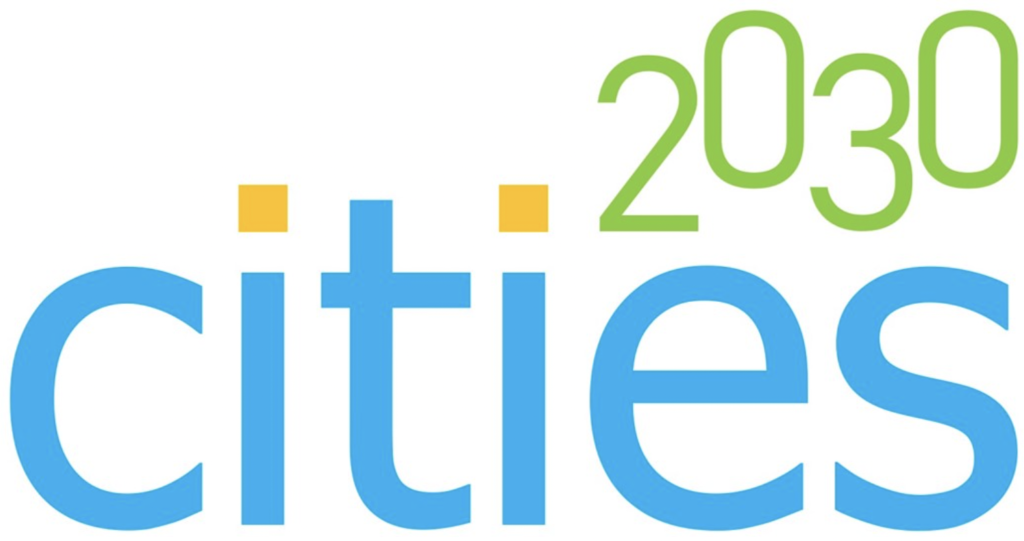Co-Creating resilient & sustainable food systems towards food2030 - cities 2030
Future Food Institute (Bologna, Italy), in partnership with 40 pan-European organizations, has received a 11.7 million euros grant from the European Commission program Horizon2020, under the call “FOOD 2030 – Empowering cities as agents of food system transformation.”
The main goal of Cities2030 is to future proof an effective cities and regions food system (CRFS) via a connected structure centered in the citizen, built on trust, with partners encompassing the entire CRFS.
CRFS demand immediate action. Cities2030 proposes consumers must be at the core of solutions.
More than 7.7 billion consumers hold the power to shift 100-year old consumption patterns to meet the requirements for an improved future.
The challenges: population overgrowth, rapid urbanization, vast migration phenomena, climate change and resources scarcity.
Over 4 years, 41 pan-European partners commit to work towards the transformation and restructuring of the way systems produce, transport and supply, recycle and reuse food in the 21st century.
Cities2030 vision is to connect short food supply chains, gathering consumers, strategic and complement industry partners, the civil society, promising start-ups and enterprises, innovators and visionary thinkers, leading universities and research across the vast diversity of disciplines addressing CRFS, including food science, social science and big data.
In the course of its development, the project aims at raising funds and is expected to attract significant funding from diverse sources of private and public sector investments.
Cities2030 actively encourage the participation of citizens by delivering a trusted CRFS, moving consumers from being passive recipients to active engagement and motivated change agents.
This approach will enable innovation actions and enhancements on a pan-European scope with a global reach. Cities and regions will improve resilience and sustainability, and their leadership will create short food supply chain and ecosystems enabling local investments, cross borders and transnational deployment.
A blockchain-based data-driven CRFS management platform will secure intelligence and coordination actions by delivering an accurate, almost real-time digital twin of the whole supply chain, e.g. from production to waste management, but also on four key enablers of resilience and sustainability: security, ecosystem services, livelihood (e.g. growth) and equity (e.g. inclusivity).
Cities2030 demonstrates and deploys an actionable roadmap to structure, accelerate and sustain transforming CRFS, and delivers frameworks for the production of policies (e.g. action plans) and innovations (e.g. supporting instruments), towards the democratization and implementation of sustainable urban food system practice, which will be piloted in real-scale in 9 selected cities which are Bremerhaven (Germany), Bruges (Belgium), Haarlem (The Netherlands), Iaşi (Romania), Murska Sobota (Slovenia), Quart de Poblet (Spain), Seinäjoki (Finland), Velika Gorica (Croatia), Vejle (Denmark),Vicenza (Italy) and 2 regions, Vidzeme (Latvia) and Troodos (Cyprus).
Cities2030 activates, accelerates, structures and generates 9 front-runners EU cities pilots and 2 regions, whilst establishing corresponding numbers of policy and living labs, and further deploys to a total of 50 EU cities pilots by 16.10.2024 on the World Food Day that year.
The aforementioned roadmap is co-created and implemented by 500 actors of the food chain and systems arena from 19 countries, abiding an open and participatory process, and framed in policy and living labs.
Cities2030 is a cross-sectoral and multi-stakeholder effort to assist cities and regions implement sustainable cities and regions food systems (CRFS) and achieve five specific objectives:
- secure healthy and sustainable food;
- stop food poverty and insecurity;
- protect and preserve natural resources;
- enhance circularity and local food belts;
- develop food culture and skills.
Future Food Institute’s role
The FFI philosophy is based on the belief that by shaping more responsible food consumers, food and beverage entrepreneurs and employees, as well as policymakers, we can shift the food system from a primarily profit-centered industry to one that is prosperity-centered.
Future Food wants, through CITIES 2030, to effect evolving positive change, promoting food innovation as a strategic element to achieve sustainable and impactful growth: leaner, quicker, rewarding.
More information: https://cordis.europa.eu/project/id/101000640

